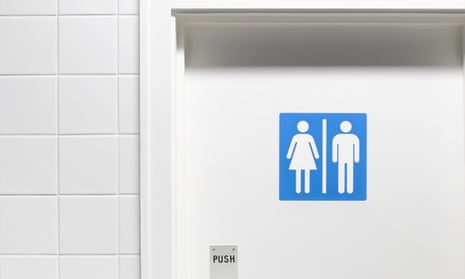“I read a piece of writing and within a paragraph or two I know whether it is by a woman or not.” So said the great VS Naipaul five years ago, on the same occasion that he bashfully told an audience at the Royal Geographical Society that no woman ever could write as good as him.
But maybe he had something of a point – at least that seems to be what Meg Elison is driving at with a provocation she published on McSweeney’s earlier this week. A series of fictional fragments titled in the Ronseal fashion – If Women Wrote Men the Way Men Write Women – makes a strong case that much writing is definitely gendered, while flipping the bird to any easy assumption of male superiority:
Brett pulled his tank top up over his head and stared at himself in the full-length mirror. He pushed down his jeans, then his boxers, and imagined the moment when Jennifer saw him nude for the first time. His feet were average-sized, and there was hair on his toes that he should probably take care of before tonight. He liked his legs just fine, but his thighs were wide and embarrassingly muscular. He tried standing at an angle, a twist at his waist. Some improvement. In that position, it was easier to see his ass and notice that it was not as pert as it had been at 22. He clenched both cheeks, hoping that tightened its look. He sucked in his tummy and pulled his pecs up high, trying to present them like pastries in a bakery window. Would she like him? Were the goods good enough? He pouted his lips and ran his hands over his thighs, masking their expanse. Maybe.
Anyone who’s ever had a brush with cultural studies will be familiar with Laura Mulvey’s influential theory of the male gaze in film and fine art and photography. But I’d never quite thought the male gaze could function equally well in fiction.
Surely the mind’s eye of fiction does a different kind of looking? I hope so anyway, because the novel would basically be a failed enterprise if it worked like that. But what do I know? After all, I’m just a man writing about a woman writing about men writing about women...

Comments (…)
Sign in or create your Guardian account to join the discussion